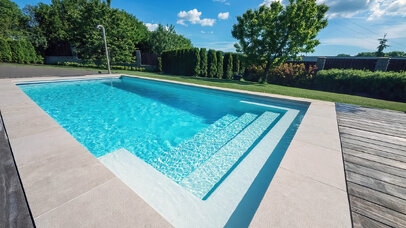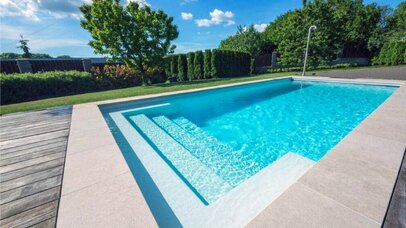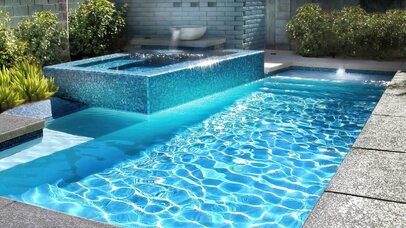Installing a fibreglass swimming pool is no small task; it is a significant investment that will entertain you and your children for years.
Even though it’s a time-consuming process, it need not be exhausting. While getting the pool installed, you can consider the available water options at hand. Water is also a crucial part of the pool that’ll decide many things besides the colour, size and shape.
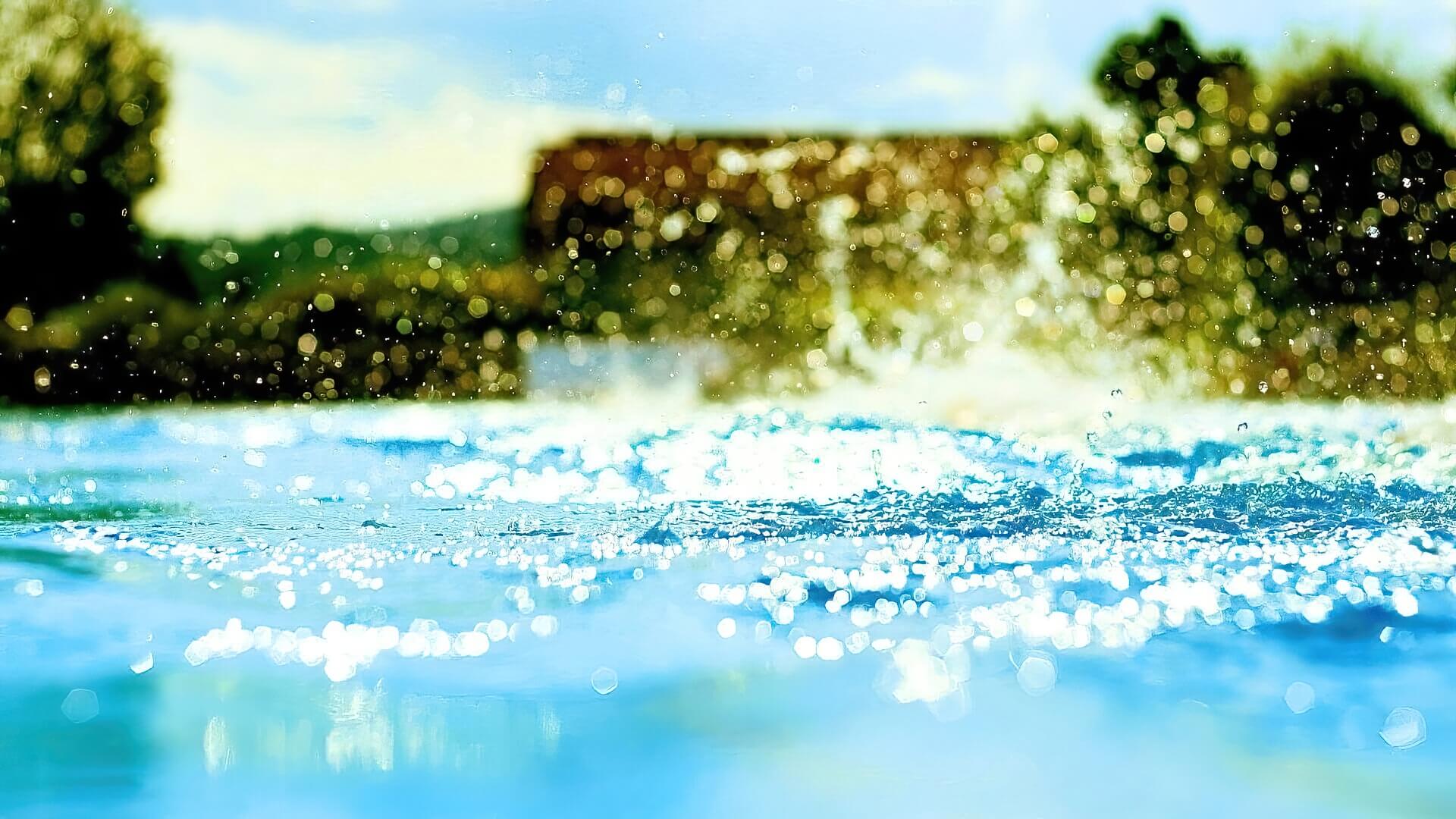
Therefore, you must choose the right type of pool water based on your needs. This article will look at some of the most popular pool water options you can consider for your fibreglass pool.
So, without any further delay, let’s get started!
Top Fibreglass Pool Water Options
These are the top fibreglass pool water options available on the market.

1. Mineral Water
If you opt for mineral water, you can rest assured that the pool water will stay free from bacteria and algae growth. This is because it is laced with potassium salts and magnesium that work together to fight various pathogens to keep your pool clean. However, it would be best if you occasionally replaced the mineral packs to get optimal results.
Are you worried about irritation? You’ll be pleased to know that it doesn’t irritate the skin like other alternatives. The best thing about mineral water is that it is affordable; it doesn’t even cost half of what chlorine does and can last an entire season.
It has gained significant popularity and is widely used throughout Australia. It is easy to use, and maintaining it barely requires any effort. Moreover, there are no side effects, so it is regarded as an ideal choice for people with sensitive skin.
Overall, it provides good value for money and is meant for people not looking to invest much.
2. Chlorine
Chlorine is by far the most popular pool water option out there. It is easy to use and keeps your pool clean by breaking down bacteria. Applying chlorine is much like bleaching since there’s a fair amount of the substance in the bleaching powder. So, when using chlorine in the pool, you bleach it.
However, remember that it is one of the most expensive ways to maintain your pool. You must add chlorine to your pool every week; otherwise, it will turn green, which is not a good sight.
It is available in tablet, granular, and liquid forms per your needs. As far as the tablets are concerned, they take time to dissolve but last longer fully. They are widely regarded as a stable source of chlorinated pool water. They can be applied using a chlorinator, which is excellent.
Granular chlorine dissolves easily because of its coarse form. All you need to do is mix it in a big bucket of water and pour it around the pool’s corners. We strongly recommend waiting a few hours before using the pool, as granular chlorine tends to spike the chlorine levels when applied significantly.
Last comes liquid chlorine, which also does a decent job of chlorinating your pool water. It is the easiest to apply; pour it directly into the water, and you are ready. However, storing it could be an issue as it comes in large packets and consumes a lot of space.
3. Saltwater Pool
The next option is saltwater pool water, which can be added to treat and prepare for daily use. It is one of the softest alternatives on this list; hence, it can be trusted not to cause skin irritation or rashes. Plus, it requires low maintenance as the salt recycles itself.
As for the drawbacks, it is highly corrosive, so it’s bound to react with all the metal parts in the pool, such as the handlebars and pool ladders. However, this can be avoided by using galvanic ions. They react with salt and stop it from causing damage to the metal pieces in and around the swimming pools.
Even though saltwater swimming pools can be expensive initially, their trivial operation cost and low maintenance make them a popular choice among pool owners. So, it’s safe to say that you will save a lot of money in the long run if you choose this option.
4. Ozone
Ozone is widely used for cleaning and disinfecting various things across different industries. Hence, it can also be an excellent option for keeping your pool water clean. To use ozone, you need a sanitisation system that transforms the water into ozone gas, thereby killing pathogens and bacteria.
However, because of its insufficient residual capabilities, it cannot be used independently; you’ll need to use it with other sanitisers, such as chlorine.
5. Bromine
Bromine is quite similar to chlorine and is often used as its alternative. The most significant advantage of using bromine is that it doesn’t have a strong odour, so sensitive people usually prefer it over chlorine.
As far as the price is concerned, it is more expensive and may significantly increase your maintenance costs.
Frequently Asked Questions (FAQs)
Still, have doubts about fibreglass swimming pool water options? Then, the following FAQs are a must-read for you.
Can pool shock be used in place of chlorine?
No, pool shock can’t be used in place of chlorine. Even if pool shock and chlorine are essentially the same, the former has more chemical strength than the latter. The applications of both products are different, so we wouldn’t suggest using pool shock instead of chlorine.
Is saltwater a good option for preventing algae growth?
Saltwater is the least effective in preventing algae growth and other pathogens. However, mixing it with other products like chlorine or bromine can be an effective solution for algae growth.
Which one does a better job: chlorine tablets or liquid chlorine?
Liquid chlorine is volatile, so you must purchase a chlorine stabiliser to ensure the pool remains in good condition. On the other hand, tablets are more stable than liquid chlorine and don’t require a stabiliser. So, it’s safe to say that tablets are a better option than liquid.
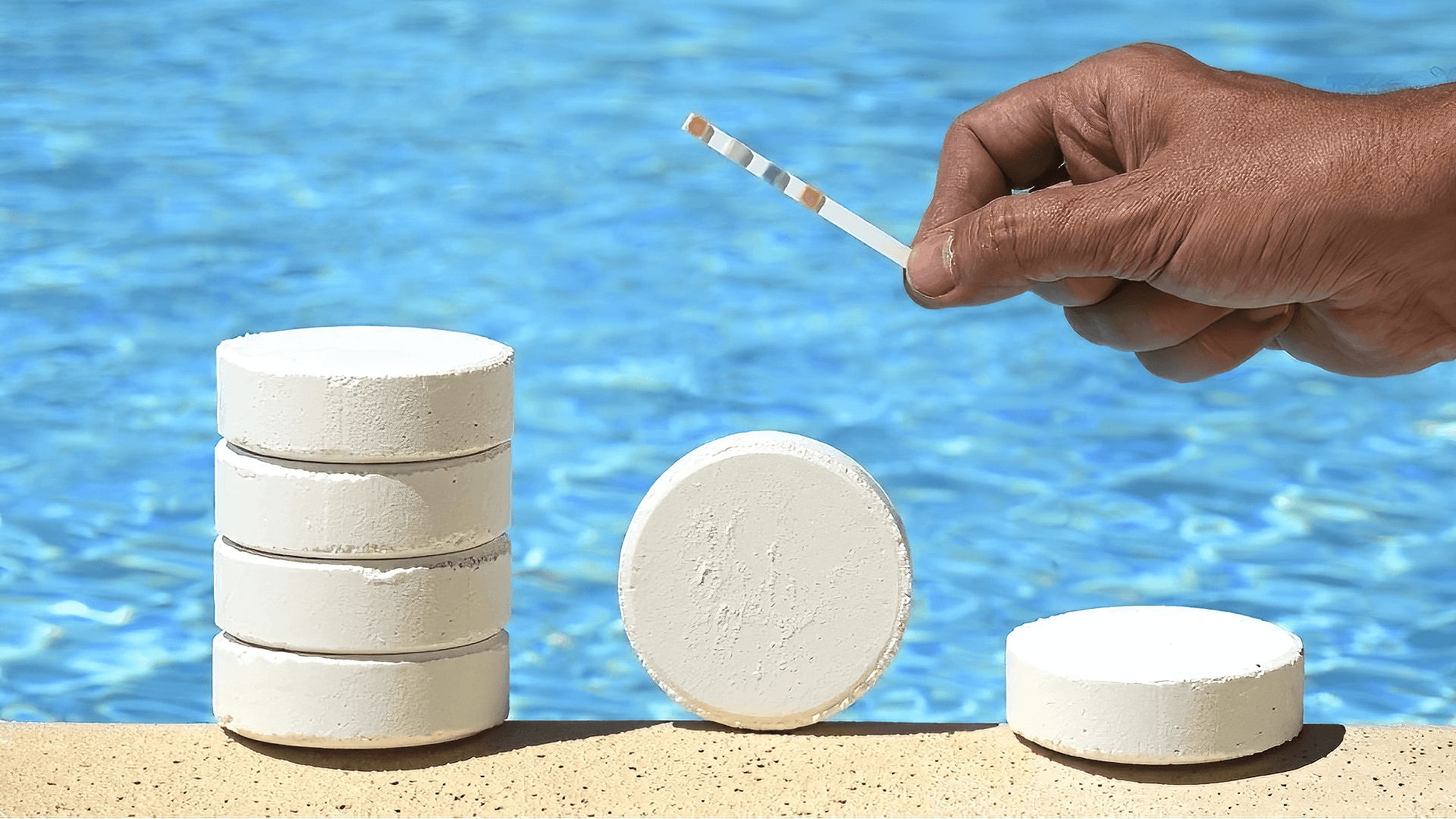
Finding The Right Water For Your Fibreglass Pools
With that, we have come to the end of this informative guide. We hope it has helped you learn about water options when installing your fibreglass pool.
So, go ahead and choose the best pool water option for your needs and enjoy time with your family in the coming summer. If you have any further queries about the topic, leave them in the comment section below.
We look forward to discussing another exciting topic, but now it’s time to say goodbye. Until next time!

